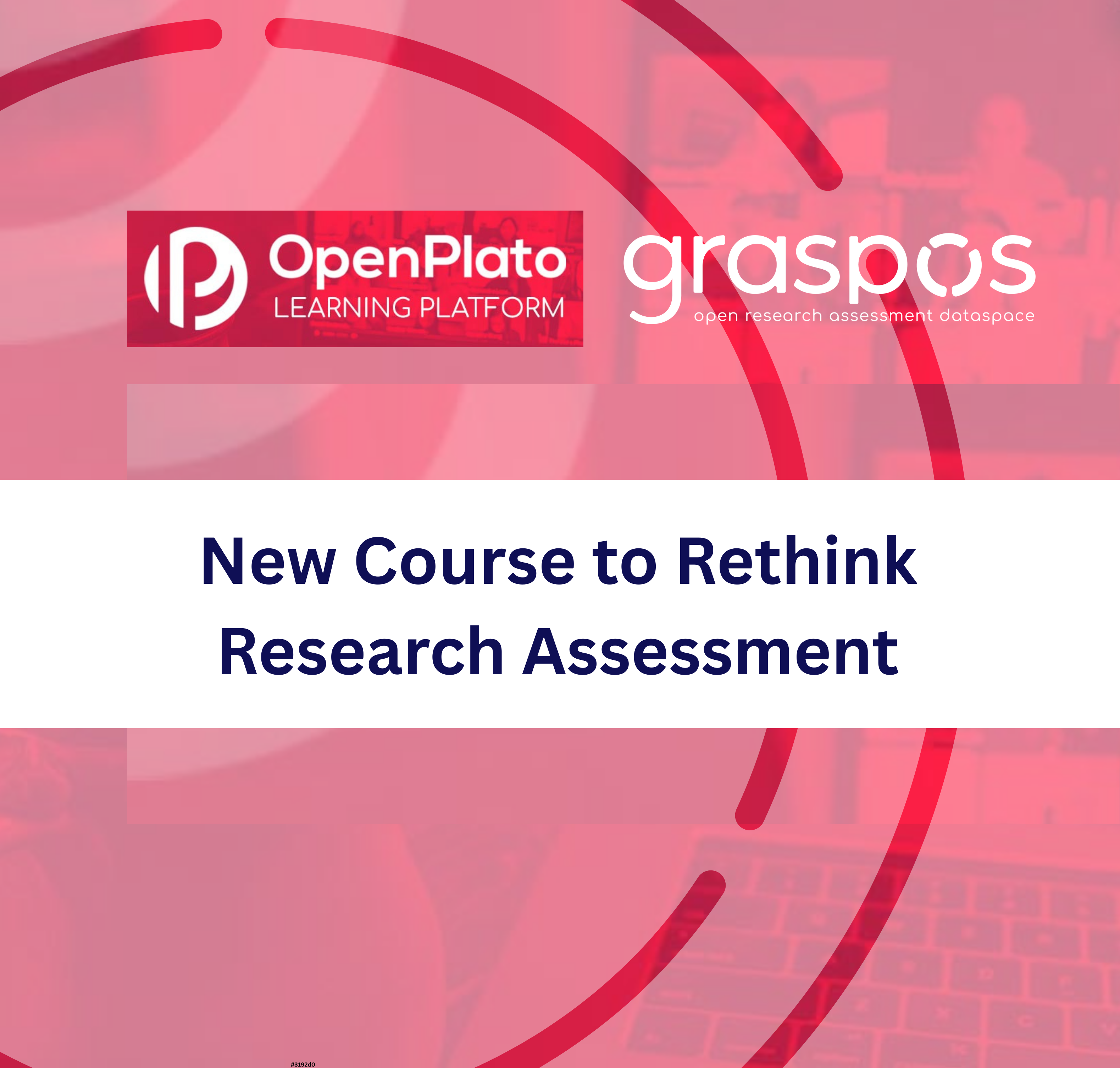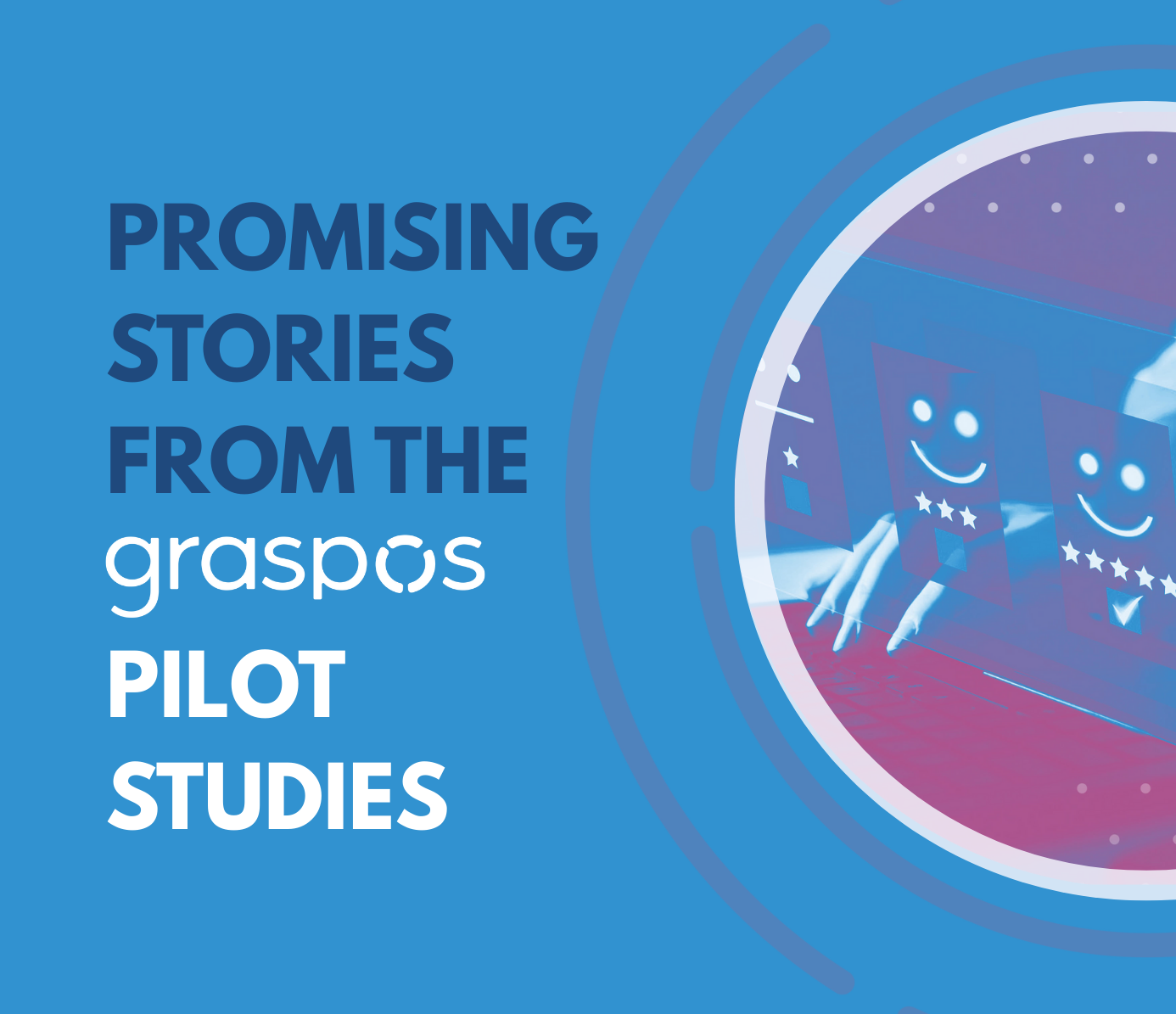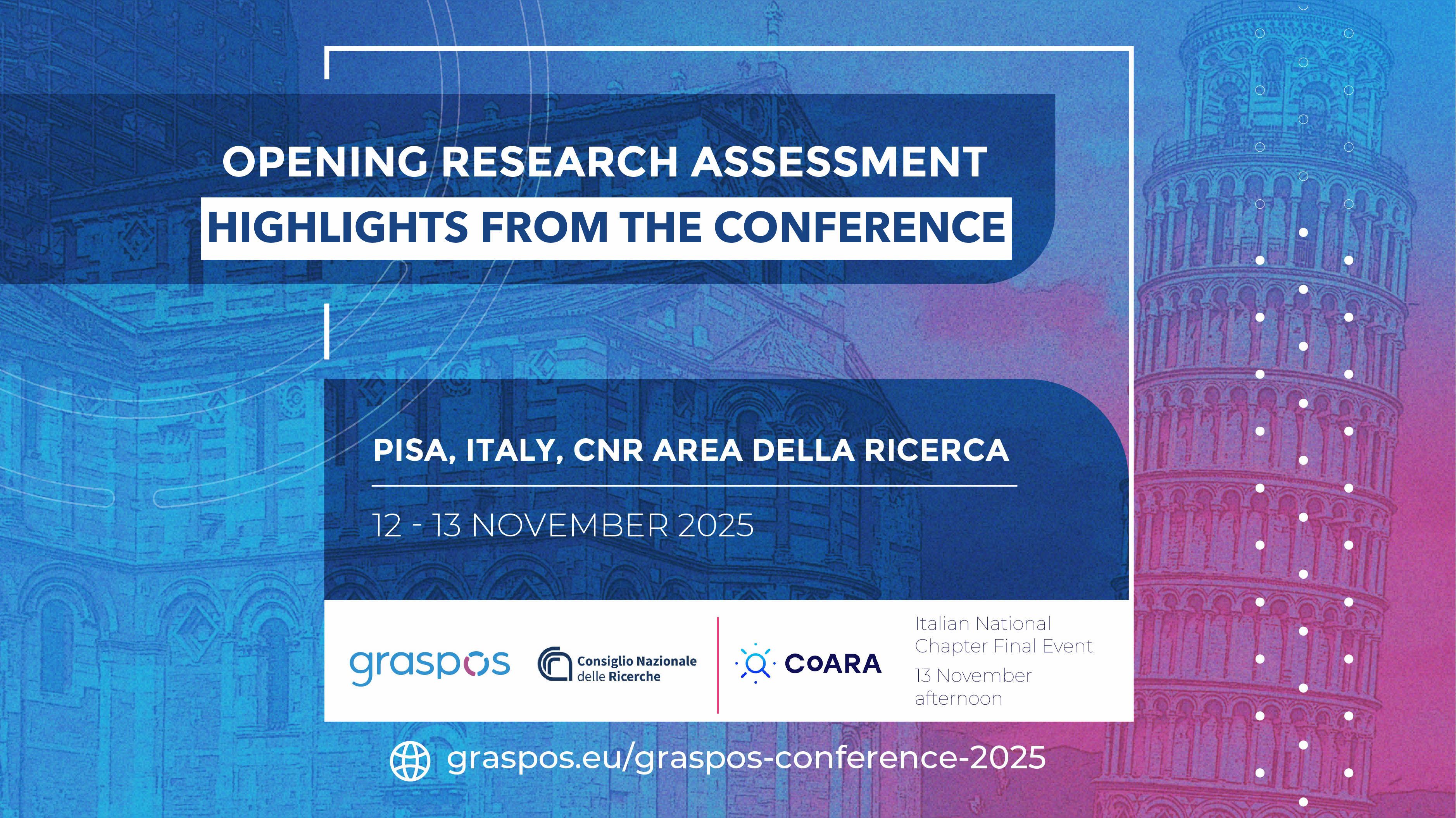GraspOS Chats #6 Get to know Silvio Peroni
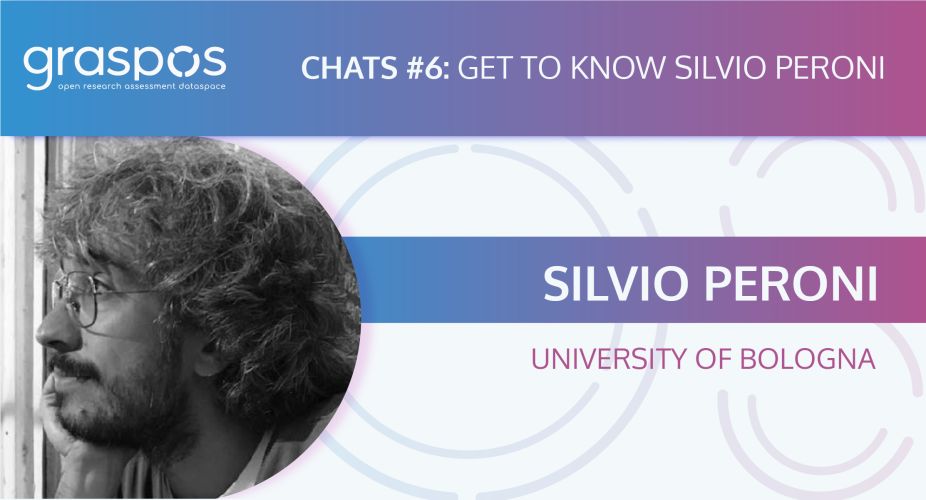
IN THIS SERIES OF INTERVIEWS WE FEATURE GRASPOS MEMBERS TO PRESENT THE PEOPLE BEHIND THE SCENES. WHAT IS THEIR ROLE IN THE PROJECT, THEIR BACKGROUND, AND THEIR VIEW ON THE NEED FOR AN OPEN SCIENCE-AWARE RESPONSIBLE RESEARCH ASSESSMENT SYSTEM?
We had the pleasure to chat with Silvio Peroni, Associate Professor at the Department of Classical Philology and Italian Studies, University of Bologna, where he teaches Basic Informatics, Computational Thinking and Programming, Data Science and Open Science. You can also find him on Twitter, Mastodon and Linkedin.
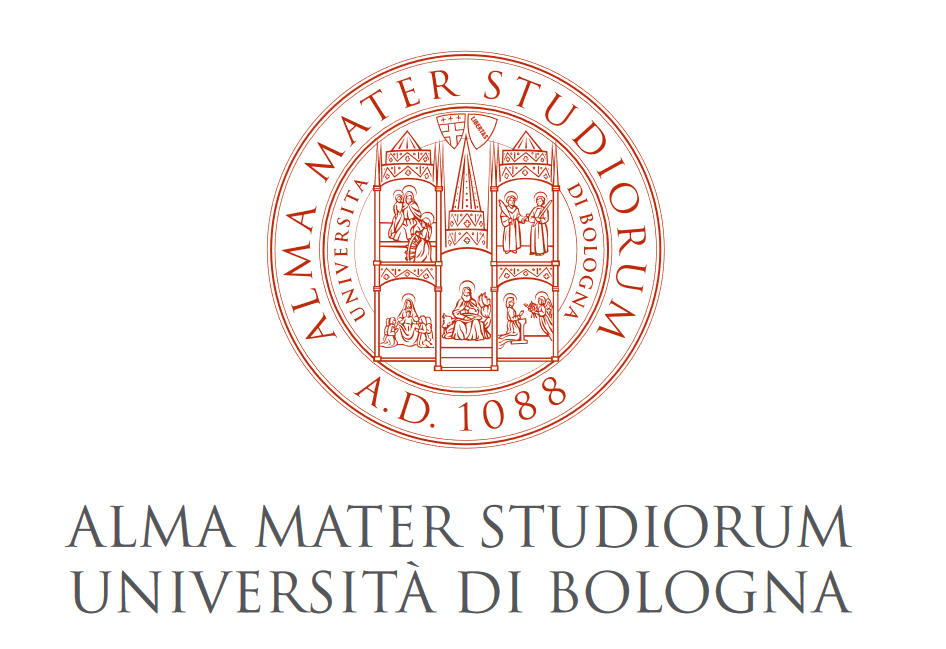
Silvio, can you tell us about your work and centres of interest?
I am an expert in document markup and semantic descriptions of bibliographic entities using Semantic Web technologies (see the SPAR Ontologies), and I am the Director (with David Shotton) of OpenCitations, an independent not-for-profit infrastructure organisation for open scholarship dedicated to the publication of open bibliographic and citation data.
My works concern theoretical studies and technical implementation of tools to foster semantic interoperability of Open Science services and infrastructures, the empirical analysis of the nature of scholarly citations, bibliometrics and scientometrics studies, visualisation and browsing interfaces for semantic data, and the development of ontologies to manage, integrate and query bibliographic information.
What is your role in GraspOS, and what are you currently working on?
I am the Local Unit Coordinator at the University of Bologna. We work on the development of a tool to extract citations from scholarly articles available in PDF format and then characterise them with their meaning, i.e. the reason why authors cite other works. Indeed, authors’ reasons for citing another contribution can vary, from reusing a method introduced in a previous work to recalling the conclusion of a prior study or extending an existing research, etc. Characterising the semantics of these citations would allow, in principle, the creation of tools for studying the evolution of science or for facilitating the search for relevant information (for instance, while preparing a literature review).
The exciting news about our research is that the tool we are developing for retrieving such reasons for citing will also be tested in a few GraspOS case studies involving real users! That will provide us with real testbeds for its application and usefulness and enable us to understand which features to consider for extending the tool.
Can you tell us about the first time you heard about Open Science, and what prompted you to get involved?
The first time I heard about Open Science as a concept was in 2010 when I was doing my PhD internship abroad at the University of Oxford in the Image Bioinformatics Research Group at the Department of Zoology. I was already acquainted with related concepts such as Open Source, being a Computer Scientist by training, and Open Access, having followed a few seminars about it when I was attending my Master's Degree. However, in Oxford, I had the chance to work with David Shotton – my internship supervisor at the time, now one of my dearest friends and colleagues with whom I direct OpenCitations – on a project aimed at creating an online database for openly sharing bibliographic and citation data of scholarly articles. In explaining that project to me, David introduced the rationale for providing all these data as openly available material to maximise their reuse, and in doing that he introduced me, for the very first time, to the concept of Open Science and the reason why it was the way to go.
Then, when I was back at the University of Bologna after my internship, I had the chance to follow a few seminars held by Open Science advocates. In particular, I remember starting to be more involved in the Open Science endeavour after a wonderful talk by Elena Giglia – who, I think, has taught Open Access and Open Science matters to the majority of today’s Italian advocates.
what are some of the main challenges you foresee in the reform process, and how can GraspOS support the movement for reform?
The movements that aim to reform research assessment are just a consequence of the broader goal of sharing and teaching an Open Science culture. In the past years, we have faced challenges in adopting the basic Open Science building blocks, mainly due to the scholarly system's inefficiency in creating incentives to foster such adoption. Several experts and Open Science advocates have claimed, in the past few years, that the only way to spread an Open Science culture to a large scholarly audience would be to force its adoption by including it in the dimensions related to the career advancement of researchers, such as in the procedure to obtain a research grant and, even more prominently, in the assessment processes of scholars and institutions.
The Coalition for Advancing Research Assessment (CoARA) has been, so far, one of the biggest catalysers (with the European Union and UNESCO) for the adoption of an Open Science culture. However, such a reform comes with several challenges that must be addressed to reach such a final goal. First, because CoARA just started and, even if there has been a huge involvement of research-performing organisations and research assessment agencies, we do not yet have clear evidence on how such a reform will effectively be implemented by all of its signatories – something we will be able to catch in four years. Second, there is an urgent need to go beyond the usual metrics used so far for research assessment purposes and to consider as proper support for peer-reviewed assessment procedures the use of new appropriate metrics and indicators that measure, to some extent, the various dimensions that characterise Open Science – at personal, institutional, national, and international level.
GraspOS has the unique chance of being one of the best well-informed testbeds for developing and testing such new metrics, thanks to the brightness of all the researchers and experts involved in the project, whose expertise covers many different disciplinary domains.
Thank you Silvio! Is there a specific activity that you enjoy doing to relax after work that you would like to share with us?
There is not one activity in particular. I would say enjoy my family, playing videogames with my kids (huge fans of Super Mario), playing chess (but I am honestly not good at it), reading books (every kind of book: fiction, essays, comics, etc.), and listening to music (jazz and classical music preferably).
Thank you for your time, Silvio!

